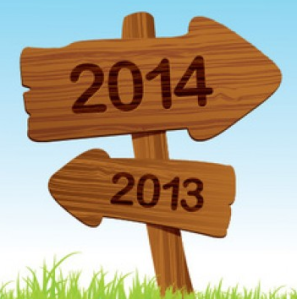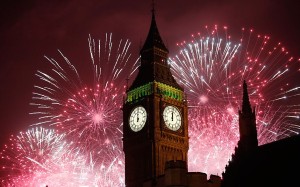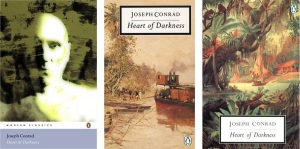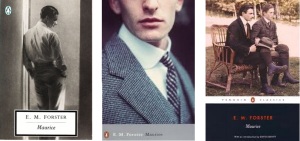
At the age of 11, I was quite an avid stamp collector, and through the beneficence of several family friends, I was able to amass a fairly sizable collection. I was particularly proud of a medium-sized green album that I put together of stamps from the British Empire, representing countries such as Tanganyika, Rhodesia, and the Malay States that no longer exist. This interest in the might of British Imperial power made me see the time of the Raj in India and the years up to the 1960s through somewhat tinted lenses, and it was only by studying anthropology at university that I saw that my previous adoration had perhaps been somewhat misplaced. Now, I can see that the British Empire had detrimental effects on almost all of the nations that it subsumed, and that these effects are being felt even now across the world. By imposing our way of life onto other cultures, we successfully eradicated much indigenous culture and society, cloaking it and choking it in the smog of so-called ‘modernity’ and suggesting that the British people were a chosen people placed on the highest level of the Chain of Being above all others. It was with this personal and intellectual background that I approached Joseph Conrad’s ‘Heart of Darkness’.
I will begin by saying that I disagree somewhat with Chinua Achebe’s view that ‘Heart of Darkness’ is a racist text that portrays the people of Africa as savages, and the continent itself as one of uncivilised, brutish violence. I don’t want to play the cultural-relativist card, as this seems a clichéd and somewhat lame excuse, and also because I think that Conrad’s text is much more than that. It is true that his use of the word “nigger” sits uncomfortably with today’s readers, and this is perhaps a sign of the times in which it was written and nothing more. However, I think that Achebe misses the central crux of the tale that Marlow tells, as rather than promoting imperialism, the subjugation of the African individual and Africa as a continent, and extolling the virtues of romantic exploration- as personified in Henry Morton Stanley and his search for Dr Livingstone- he presents the stark reality of attempting to voyage into the heart of a continent that is ‘dark’ not due to the colour of its inhabitants or the nature of their un-Christian souls, but simply because it represents a void in the knowledge of the rest of the world. The ‘darkness’ is present in the fear that the unknown presented to the people of the late 19th century, and is therefore only culturally relative in as much as the text documents the beliefs and thoughts of people at a given period in history; it does not hide behind this as a justification for the thoughts.
The theme of ‘darkness’ is perhaps an obvious one in the text due to the clue given in the title, but I was genuinely surprised by just how many times the word ‘dark’ or ‘darkness’ is actually employed within the text. (Upon a further reading, I may endeavour to note each of these occasions, but it will come as a shock that I haven’t yet attempted this.) Not only is it used to describe the physical appearance of the Congo jungle, but also the Thames on which the story is narrated, and the character of the enigmatic Kurtz. In doing this, Conrad manages to make a connection between the unknown and unexplored, potentially dangerous African continent and the lifeblood of the English capital, suggesting a similar unfamiliar side to the river and at a further level the country as a whole. Due to the manner of its colonising, Britain could be said to have had a ‘Heart of Darkness’, and as such be just as dangerous and savage as the unexplored land is perceived to be. Similarly, the ‘darkness’ of Kurtz is suggested firstly in the way that he too- like the interior of Africa- is unknown and a mystery to Marlow (he is literally in the dark about the character, piecing together his own ideas about the man from the scraps he is told), and also in the way that Kurtz recognises his own ‘darkness’ and through his exploitation of the native people, and the ‘darkness’ of his actions as a part of the colonial machine in his final words: “The horror! The horror!” Kurtz further represents a ‘darkness’ in the way that he takes advantage of the veneration shown to him by the locals due to his position as an outsider, and highlights the ‘darkness’ that these people were in when it came to the Europeans; they were ‘in the dark’ about the true intent of many colonisers, and were unaware of the way in which they were having their way of life slowly removed (or at least altered).
Upon reading ‘Heart of Darkness’, I was struck by Conrad’s exquisite prose, and pleasantly surprised at just how many passages gave me cause to refer to a dictionary. For a writer who was writing in his third language, I think that the text is a stupendous achievement, and am enamoured by it also due to its dual nature as a piece of fiction but also as an anthropological text, revealing much to us about the colonial apparatus and the way in which such explorations effected all parties concerned. Often, this is overlooked in even the best ethnographies. For example, Mead excludes mention of the US influence upon those she studied in Samoa, as well as the bias behind her research, and Evans-Pritchard in his three celebrated studies of the Sudanese Nuer fails to mention the fact that he was employed as an anthropologist by the British to report on these communities could best be brought under colonial control, and also fails to show the ways in which the British-imposed culture had manages to impact upon their laws, economy, religion and general way of life. Instead, we are presented with a false image of the Nuer as a people untouched by the ‘modern’ world, when in actuality, the ‘facts’ recorded are all as they stand post-contact.
I believe that ‘Heart of Darkness’ should be read by anthropologists as well as lovers of fine literature, and would recommend it as essential reading for everyone. The technique of a ‘story-in-a-story’ narration is slightly jarring (as I found it to also be in ‘Frankenstein’) in the way that one character recounts a book-long story recounted by another character, but i was not put off by this and hope to revisit the text again, armed on this occasion with a pencil ready to annotate and to count up the repetition. And when it comes to the stamp collection, I think that it will provide me with a fresh perspective on this too.










